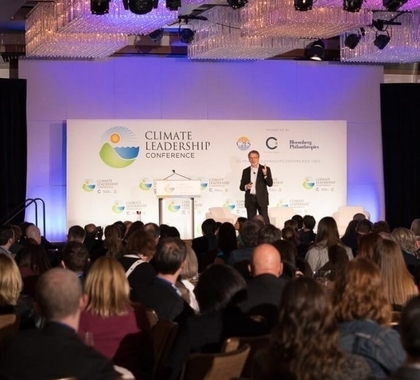Recently, I received a request from Janet Yellen, chair of the Climate Leadership Council, sign the “Economists’ Statement on Carbon Dividends.”
I won’t sign. Here’s why.
The heart of the Council’s proposed “Carbon Dividends Plan” (CDP) is a “robust and increasing” tax on carbon emissions, $43/ton when it begins in 2021 (equivalent to a tax of $0.38 per gallon of gasoline). This tax would represent the estimated cost imposed by carbon emissions, and increase at a rate that takes into account discounting for time and carbon “decay,” the rate at which excess carbon naturally leaves the atmosphere.
Thus, it prices carbon emissions according to the harm they are expected to do, leading emitters to reduce their emissions optimally. Of course, the tax raises costs for everyone, so to avoid political fallout from the tax, the Council proposes to rebate the tax revenue to American citizens in the form of lump sum payments. Current regulations controlling carbon also would be lifted, since the tax itself would fully incentivize optimal carbon emission reductions.
The plan is simple and, at first glance, appealing. The rate of tax increase is calculated according to what economists call a “Hotelling trajectory,” which seems to minimize the cost of climate policy while providing optimal abatement. The rebates make everyone happy. But there are serious problems.
First, and most importantly, the CDP’s Hotelling trajectory tax is based on erroneous models of an optimal carbon tax. It is inefficient because it ignores climate inertia. Carbon emissions entering the atmosphere do not immediately translate into temperature increases, and as it turns out, this time lag matters greatly. A recent paper by Derek Lemoine and Ivan Rudik in the American Economic Review (Oct. 2017) shows that the Hotelling tax would cost at least 10 times what a tax calculated to include the effects of climate inertia would.
This optimal tax is much lower initially and increases at a faster rate later. By taking advantage of inertia, this allows for more economic growth and development, and more time to try to make low carbon energy sources cost-effective, and does so without sacrificing temperature goals. The Council proposes a tax that would impose ten times the cost that the optimal tax would. They’ve calculated the tax wrong. No, I won’t sign on to that.
Second, I’m skeptical of all the current claims of sudden urgency. The recent IPCC report SR15 does not show that immediate drastic action is necessary. A careful reading of the IPCC report suggests it is really about quickly and incautiously implementing U.N. Sustainable Development Goals, for purposes of so-called “social justice.”
It calls for governments to take major roles in allocation of finance and economic resources, and it calls for international transfer payments from governments in wealthy countries to governments in poorer ones. It appears to be a scheme for massive redistribution of political power and wealth, more than a climate proposal. This, plus the inertia effects, makes me doubt the need for rapid, bold action. The U.S. is already reducing its greenhouse gas emissions, particularly in electricity generation, in the absence of a carbon tax, simply as an effect of market forces. (Holland et al. 2018)
There’s a third reason I won’t sign. I doubt a unilateral U.S. carbon tax has any important power to address climate change, since the lion’s share of new emissions will come from the developing world. Even if U.S. greenhouse gas emissions went to zero, something no plan can achieve, climate models suggest this would reduce average global temperature increase by less than 0.5C. Unilateral U.S. action won’t solve the problem.
The CDP proposes a border adjustment carbon tax to incentivize exporters in other countries. I suspect this would simply to be a trade barrier and little else; it’s a very weak incentive for other countries to reduce emissions, and none at all for their domestic emissions.
All this assumes, of course, that projections by climate modelers for rates of warming are correct, and that politicians won’t hijack tax rates, revenues, and rebates for their own political gain. Assuming all this, the Carbon Dividends Plan is the least bad of all the bad solutions to climate change, and certainly superior to the absurd and utterly destructive proposals in IPCC SR15 or the Green New Deal. But my fellow economists have omitted important economic and climate factors, and their proposal is still wildly inefficient.
I won’t sign.
[Originally Published at Real Clear Energy]





